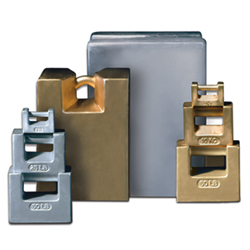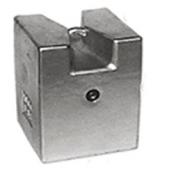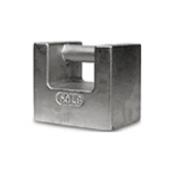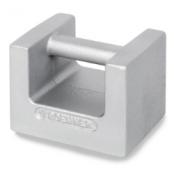Use up and down arrows to select available result. Press enter to go to selected search result. Touch devices users can use touch and swipe gestures.
We sell, repair, calibrate & rent scales

For over 40 years, Central Carolina Scale has been supplying scale calibration weights and other high-quality precision measurement products and services to customers in a wide range of industries. Our customers trust us because they know that we offer world-class manufacturing technology, an experienced staff of industry experts, and a dedication to total quality. You’ll always know that when you choose Central Carolina Scale, you’re getting the best solutions available for your precision calibration test weight needs.
Our suppliers manufacture calibration weight sets for testing and calibrating all types of scales, including ASTM, OIML, and NIST classes, which are ideal for balances and scales. Do you need a specially designed weight, weight kit, or weight case? Contact us and we’ll provide you with a customized quote. Our precision weights are designed to assist our customers with ISO 9000 traceability requirements.
Scale calibration weights are used for a number of applications, allowing you to perform routine testing of your scales to ensure their accuracy and to help with calibration. They also assist you in checking span and linearity.
As a leading seller of scales and weights in North Carolina, our team is highly qualified when it comes to finding the best calibration weights for your application and we’re always available to provide you with assistance and weight buying advice. Give us a call or send us an email to learn more about our lineup of products and to get our recommendations based on your needs.
Contact us today at (919) 776-7737 or complete our form to request a quote.
If you’re not calibrating your scales regularly, you should! If you still have the user manual for your scale, it should offer recommendations as to the frequency of calibration required. If not, contact our team and we can provide you with an answer based on the model you own and how you are using it.
Because a scale calibration weight is already known to have a specific mass, when weighing it on your scale, the reading should match with the mass of the calibration weight. (In other words, if you place a one-pound calibration weight on a scale, the read out should be exactly one pound.) If there’s a discrepancy between the two, then your scale must be calibrated, or adjusted to improve its accuracy.
If you are using your scale in a laboratory or for commercial purposes, there are rules and guidelines that must be followed. If not, simply make sure your scale is clean and on a flat, solid surface, then use a calibration weight to assess its accuracy.
| Cast Iron Weights (MOST POPULAR INDIVIDUAL PAINTED WEIGHTS) |
Cast Iron Weights (pdf file)  |
|
Slotted Weights and Hangers
|
| Cylindrical Stainless Steel Weight Sets - (MOST POPULAR WEIGHT KITS) |
|
Test Weight Kits (pdf file) |
| Precision Laboratory Stainless Steel Weights (MOST POPULAR INDIVIDUAL S.S. WEIGHTS) |
|
Individual Test Weights (pdf file) |
|
Slotted Weights and Hangers
|
| ASTM Weights & ASTM Hook Weights (pdf file) |
|
|
| Weight Accessories |
|
Sealing Plugs
|
| Static Solutions --- Static Mats |
|
|
| Other Laboratory Stainless Steel Weight Sets Available |
|
ASTM Weight Sets (pdf file) |
|
OIML Weight Sets (pdf file) |
| OIML Weights (pdf file) |
|
|
What kind of certification requirements do you need for your calibration weights?
Cert of Accuracy? .............. Traceability?



